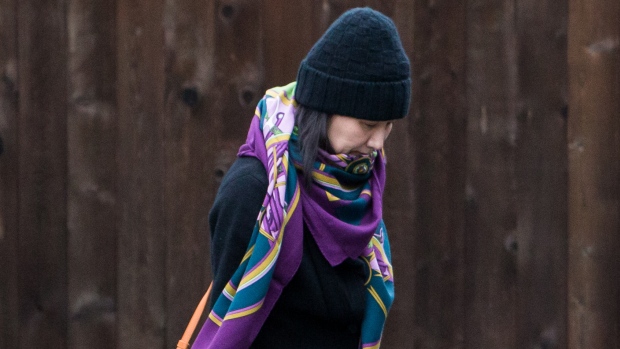Dec 21, 2018
Huawei tries unusual charm offensive involving arrested CFO's diary entry
, Bloomberg News

Guided tours of some of its most sensitive facilities. A private sit-down for international media with its top executive. A heartfelt personal diary describing a devastating earthquake. In the weeks since the shock arrest of its finance chief, the long-secretive Huawei Technologies Co. has almost become a different company.
The detention of Chief Financial Officer Meng Wanzhou in Canada has shone an unprecedented spotlight on China’s largest technology company, which found itself thrust into the centre of U.S.-Chinese tensions. Because the U.S. accused Meng, daughter of Huawei’s billionaire founder Ren Zhengfei, of bank fraud to violate Iranian sanctions, even its internal controls were called into question. In response, the company amped up an unusual charm offensive, saying it’s a wrongly maligned international citizen crucial to the future of wireless communications.
Huawei has in past years taken steps to address complaints about its lack of transparency by reporting more of its financial results and building labs to showcase proprietary technology. But it’s recently gone to atypical lengths, inviting foreign media to tour its campuses in China and opening its secretive “White House” research base to reporters. Perhaps most incongruously, Huawei circulated a 700-word diary entry it says Meng wrote after getting mail from an unnamed Japanese fan. It was entitled “There Is Always Good in People!” and explained how the letter writer said she was “very sad” for Meng’s arrest in Canada and “cannot keep silent any longer.”
On Tuesday, the company took the unusual step of making Rotating Chairman Ken Hu available for a two-hour, free-form Q&A.
“This year has been so eventful, hasn’t it,” Hu told reporters as he defended the company’s track record and slammed U.S. accusations about its independence and alleged role in espionage. “Lots of countries have various concerns on 5G. Most of these concerns are reasonable and based on technology. With regard to such concerns, we’ll work with governments and operators to clear them up.”
Huawei’s urge to reach out is understandable given its position: its years-long, costly effort to achieve a strong position in future fifth-generation or 5G technology now risks running afoul of the conflict between the world’s two largest economies. It needs to again assure customers around the world it’s the best choice, and dispel concerns its equipment is less than secure or could be subverted by Beijing — something it’s always denied.
In the diary entry Huawei provided, Meng painstakingly outlined the company’s above-and-beyond response to earthquakes that rocked Japan and Nepal years back, and described an outpouring of support from around the world.
“My lawyer said that he had been practicing law for over 40 years and had never seen anything like this, with so many strangers willing to issue guarantees for a person that they don’t know personally,” she wrote.








